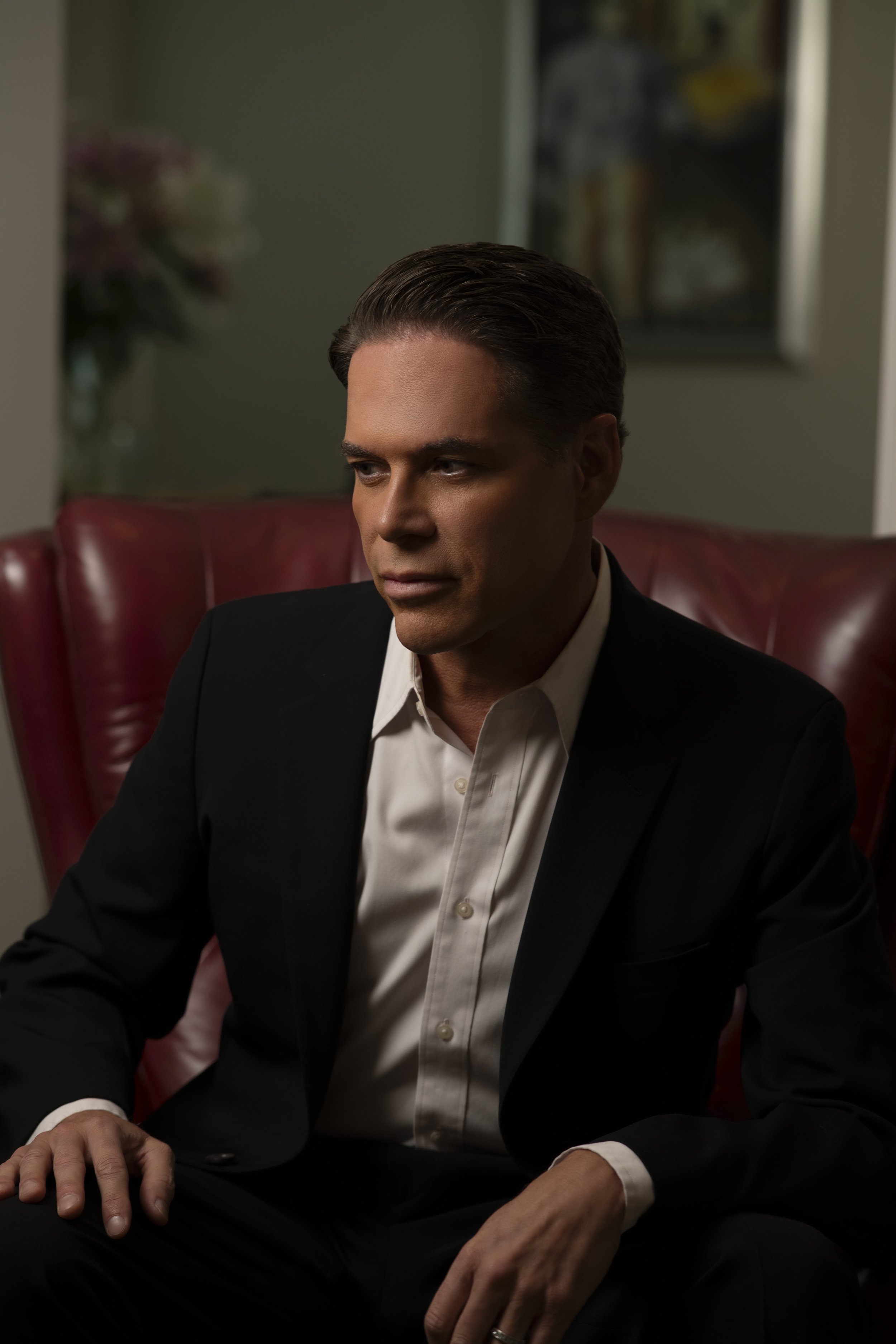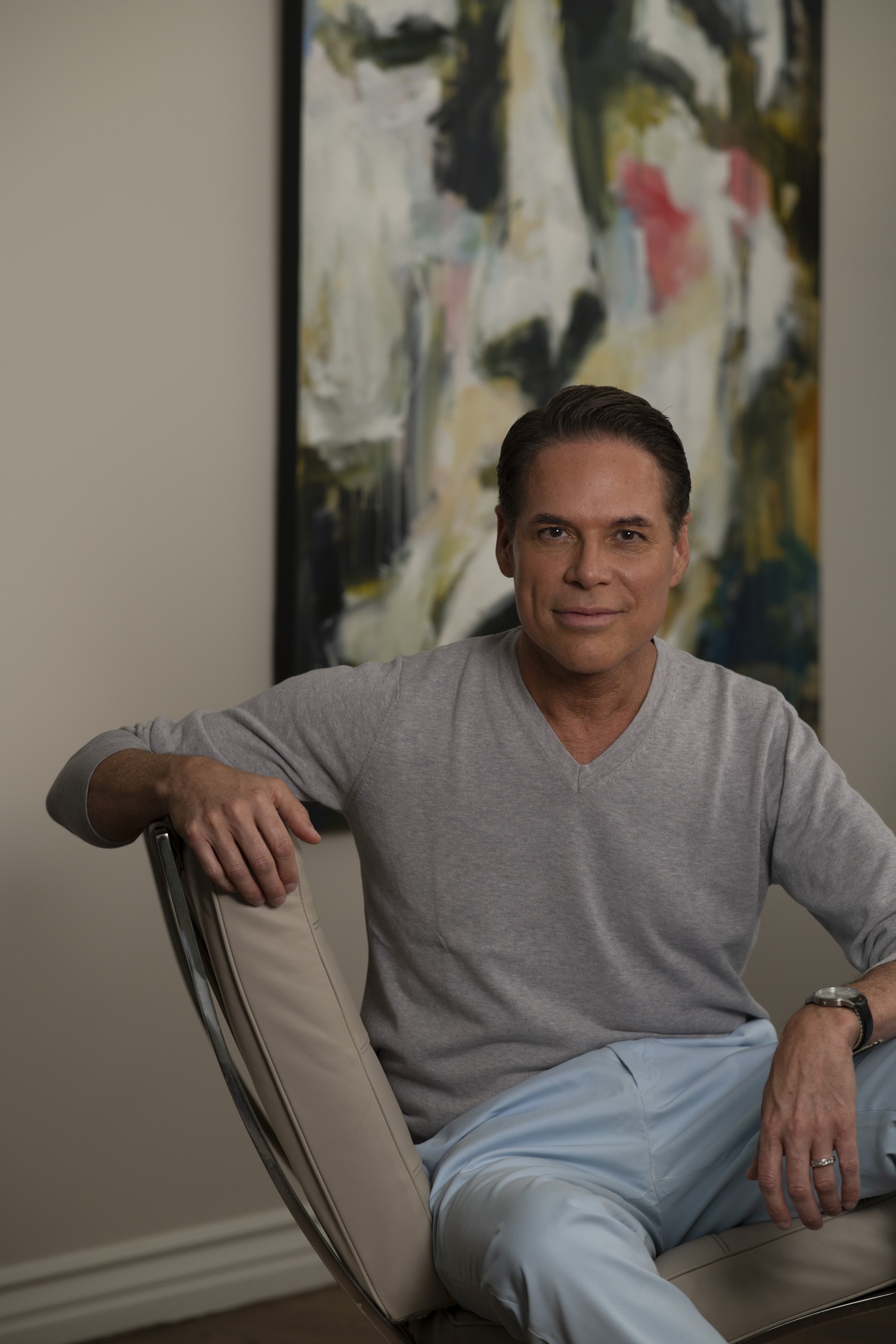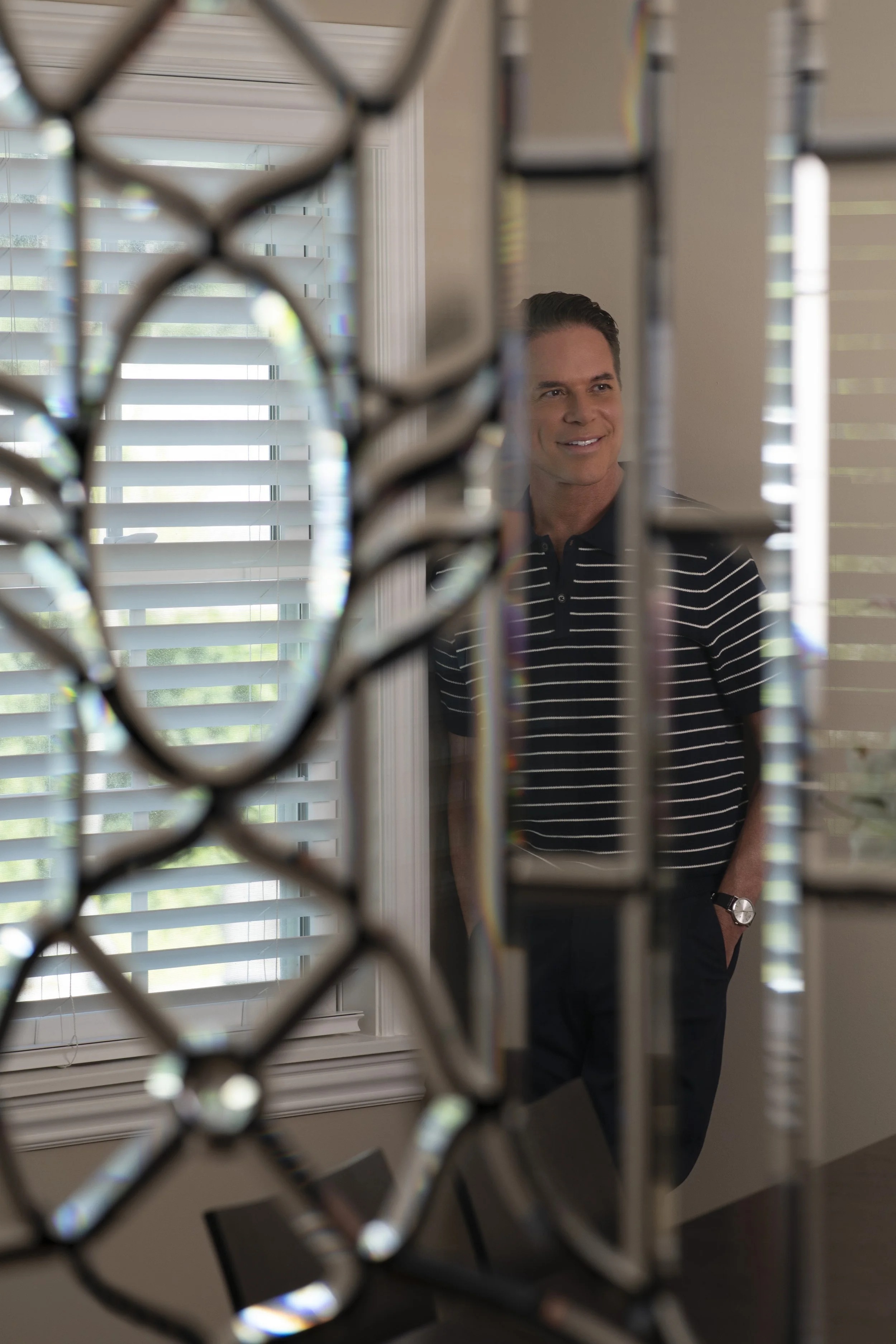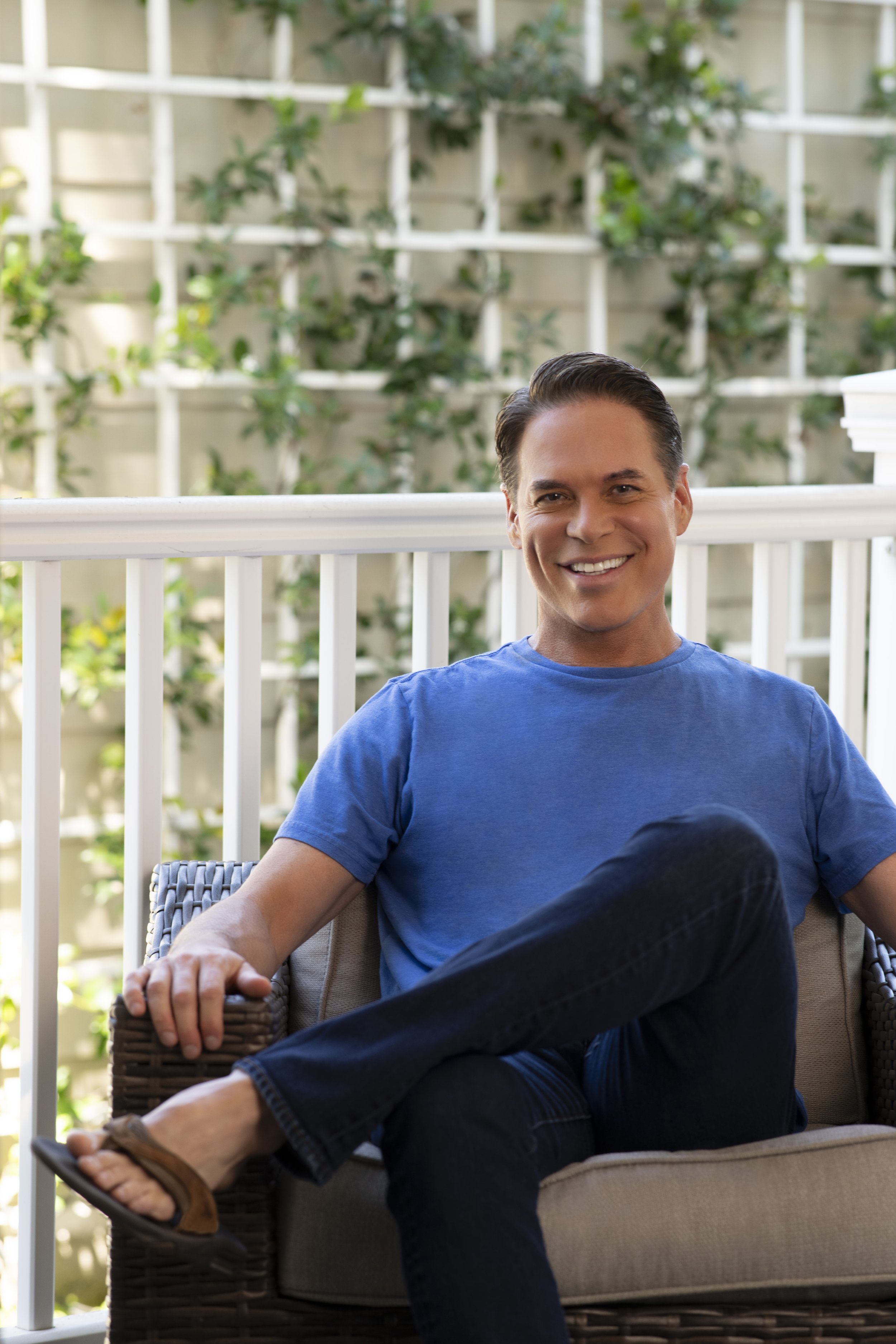JORGE
VALENCIA
POINTING
THE WAY
TO A BRIGHTER FUTURE
Written by Alan Uphold
Photographs by Paul Robinson
Critically acclaimed Los Angeles photographer, Paul Robinson, has created a 12-part series of photos and articles featuring twelve LGBTQ individuals who have used their notoriety, their celebrity, or their downright chutzbah to affect change in the LGBTQ community.
The series, named “Twelve Soldiers,” will feature Paul’s photographs and a profile of a different social justice warrior each month.
In addition to Paul’s incredible photos of the twelve featured soldiers, his company, NEFT Vodka will donate $1,000 to the charity of choice for each of the featured soldiers.
Jorge Valencia is an accomplished man who has dedicated most of his career to helping young people—especially LGBTQ young people.
From the Hugh O’Brian Youth Foundation to The Trevor Project to Point Foundation, Valencia has spent most of his life working to improve the lives of America’s youth and watching them become the leaders of tomorrow.
Valencia’s own challenges as a young person may be one of the reasons he is so passionate about his work.
He likes to say that growing up, he was a member of three unique groups of people—Latino, gay, and Mormon. All of which was made even more trying by the fact that he grew up in Texas.
Valencia is a first generation American of Mexican descent, and even though his parents immigrated to the United States legally, he still carried the stigma of being a Mexican immigrant. Growing up, he spoke both English and Spanish in his house—English with his Dad and Spanish with his Mom—and it was important to his parents that he and his siblings spoke both languages even though other immigrant parents shied away from teaching their children Spanish. Most immigrant parents feared that if their children spoke with a Mexican accent, it might result in them being teased at school.
In fact, Jorge recalls that as a child his father asked him if he wanted to change the spelling of his name to George so that the spelling would match the way the family pronounced it. Like his father, who is also named Jorge, Valencia pronounces his name J-OR-J, not the Spanish pronunciation HOR-HEH. But he
“I didn’t fit in with the white kids because I was Mexican,
and I didn’t fit in with my own people because I wasn’t Mexican enough.”
was proud of his heritage and kept the same spelling as his father.
At school, the kids were not so impressed with his heritage. His family did not have a lot of money, so his mother would pack his lunch, which often consisted of Mexican foods that she had lovingly prepared for him. Despite the fact that there were many other immigrant families at his South Texas school, the white kids still made fun of them for their food, their accents, or the way they looked.
Jorge was teased too, of course. The way he looked was not immediately obvious.
“To this day,” he said, “people aren’t always clear on what my ethnicity is.”
This has made for some interesting situations in which people around him—even at school—would talk about him in Spanish not realizing that he could understand every word they were saying.
As a result, Jorge found it hard to find his place.
“I didn’t fit in with the white kids because I was Mexican, and I didn’t fit in with my own people because I wasn’t Mexican enough.”
Then add to the mix that, like many gay men, he realized fairly early in life that he wasn’t like the other boys.
Because of their financial situation, he and his sister would at times receive only one gift at Christmas.
“She would get a doll, and I would get a truck. The
doll seemed a lot more interesting to me. You could dress her up, you could do a lot of things with a doll that you couldn’t do with a truck,” he laughed.
Being a little gay boy gave the kids at school even more fodder to tease Jorge, but it was the one that stung the most because he didn’t have a support system for being gay.
“I could talk to my family about being Mexican, and I could talk to my family about being Mormon,” he said. “But I couldn’t talk to them about being gay.”
As he grew up, Valencia’s duties and responsibilities within the Mormon Church took on greater significance as he attended Brigham Young University and learned to speak a third language, Portuguese, to go on his mission to Southern Brazil.
When he returned to the United States, he finished his degree at BYU and eventually found his way to Washington, DC, working for a music company. His experience in communication led to a job on the Bill Clinton inauguration committee. Like most Mormons, he and the entire Valencia family were registered Republicans, but he saw the job offer as an exciting opportunity to work in politics, and he accepted the position.
His politics eventually started to shift a bit to the left, and it was around this time that he decided he would come out to his parents. He knew he would eventually have to tell his parents that he was gay, but he wanted to make sure he was self-sustaining and had a solid support group first. His political appointment with the Clinton Administration provided him with that sense of self-support.
According to Valencia, “I didn’t tell my family until I had a good job and a good support system because I thought I would lose my family—as I had seen happen to other gay Mormons.”
When he told his family, his parents strongly suggested that he go to a church approved therapist. What Jorge and his family came to find out later was that this therapy was conversion therapy, a method of trying to reprogram one’s sexual orientation through subtle methods such as spiritual intervention and counseling or more extreme methods such as electroshock therapy and nausea-inducing drugs that result in sexual aversion.
Conversion therapy has been proven to not only be a scientific and psychological failure, it can actually cause long-term psychological damage. However, that has not put an end to conversion therapy entirely, and fortunately in Valencia’s case, he had an epiphany.
“As I sat in the parking lot waiting to go in for my first appointment, I couldn’t bring myself to walk into that office because I realized in that one moment…that there was nothing wrong with me. Why would I want to go into a place where some therapist was going to tell me there was something wrong with me?”
It was a difficult thing for him to admit. “That was a turning point for me. I thought, my family can either accept me for who I am or not.”
It took a few years, but Valencia’s parents did eventually learn to accept their son, and he has a good relationship with his family today.
The story reinforces that Jorge is acutely aware of the pain experienced by the people he served in his first LGBTQ non-profit job as CEO of The Trevor Project.
“That was a turning point for me.
I thought, they can either accept me for who I am or not.”
The Trevor Project was formed after the movie “Trevor” won an Academy Award in 1995. The subject of the film was a gay teenager’s struggle with being outed at school and his subsequent suicide attempt. The film’s producers wanted to include a phone number at the end of the film where teenagers struggling with their sexuality could call for support. They were shocked to find that no such helpline existed. So they founded their own organization.
When Valencia started at The Trevor Project, the organization was not nationally recognized or even well-known, despite the fact that it was the nation’s only support hotline for LGBTQ youth.
“When I started at Trevor, none of the leaders in the community would even meet with me,” he recalled. “They thought we were too small and everyone said we should just merge with a larger organization.”
Numerous individuals suggested that The Trevor Project become part of some larger LGBTQ organization, but Valencia and the board resisted, seeing how important the mission of the organization was. Trevor remained autonomous.
“To be honest, at first even I thought, well, we will just continue as this small hotline that we’ll keep operating to help queer & questioning youth. But then people started to recognize my association to Trevor, and they wanted to talk to me about it. They really started to see how critical our work was.”
Under his leadership, The Trevor Project increased its operating budget 800% and expanded its programs from a suicide hotline with limited hours to a 24/7 support line with educational kits about suicide prevention and outreach programs to raise community awareness and support, among other services.
One of the things that made his work at The Trevor Project so poignant was his own struggle with thoughts of suicide and ultimately his own self-acceptance.
“I know first-hand what the suicide rates are among LGBTQ youth,” he said, “I have never seen the end result of conversion therapy that has had a positive outcome. I know adult men who went through conversion therapy who still cannot function in society. Their self-esteem is so low. They struggle with self-love and acceptance.”
In 2007, Valencia was tapped to lead another non-profit dedicated to giving LGBTQ youth a chance—Point Foundation, which offers individuals the opportunity for a higher education.
Point Foundation was created in 2001 by individuals who understood rejection for being gay. They wanted to provide scholarships for young LBGTQ people who found themselves without the support of families and communities.
In 2002, Point Foundation granted scholarships to its first class of eight students. Valencia has been at the helm of the organization for 16 of its 21 years, and its programming has expanded dramatically.
Point now offers its scholars financial support, mentor programs, leadership training, and a network of community leaders. In addition to undergraduate and graduate scholarships, Point now also offers one and two-year community college scholarships, scholarships specifically designated to support BIPOC students, and one-time opportunity grants.
“A day doesn’t go by that I don’t look to these young giants
who not only survived such challenges, but found a way to survive and thrive.”
Going from supporting just eight scholars in 2002, Point Foundation is supporting 575 scholars in the 2023-2024 school year. Aside from the numbers, it is the stories and impact that they have had on individual students’ lives that drives Valencia to continue the work.
Jorge often recounts the time when Point Foundation was interviewing finalists for their flagship Point Scholarship some years back. Point’s selection committee was in the process of interviewing its final round of candidates when a young man walked in the room and appeared to be very nervous—despite the fact that he had an imposing stature and impressive credentials.
“Here was this big guy with an amazing resume and a history of community service and volunteerism, but he was SO rattled,” he remembers. “One of the interview panelists said. ‘It’s okay, just take a deep breath. You’ll be fine.’”
Valencia recalled the student’s response was one that he will never forget. He said, “I’m sorry. I’m just really nervous. I’ve never been in a room full of people before who all want to see me succeed.”
Valencia recounted the story of another Point scholar that hit particularly close to home for him.
“A few years into my job at Point, a scholar shared his story of growing up gay and Mormon – like me. Unlike me, however, his parents discovered he was gay when they read his journal entries. His belongings were placed in trash bags, and he was forced to find shelter that day. He was a senior in high school.”
“A day doesn’t go by that I don’t look to these young giants who not only survived such challenges, but found a way to thrive. HE and so many others are my heroes!”
It is these stories and hundreds more like them that has motivated Valencia to help young LGBTQ youth in his career. He says that his last 22 years working for non-profits has been the most rewarding and fulfilling time of his life.
In the midst of all of his work with non-profit LGBTQ organizations, his affiliation with the Mormon church and with being gay were put to a difficult test in 2008.
That year, voters approved California’s Proposition 8 which added an amendment to the state constitution banning same-sex marriage. The measure was heavily financed by the Catholic Church and the Mormon Church.
In the days following its passage, protests broke out across the state. One of the largest protests took place in front of the Church of Latter Day Saints’ second largest temple in the world—Los Angeles California Temple on Santa Monica Blvd.
Organizers of the event knew that Valencia was Mormon and asked him to speak to the crowd. He was conflicted. He felt betrayed by his church, but he knew that he was probably one of the most well suited people to address the issue with the crowd.
“If anyone could be respectful of the fact that not all Mormons agreed with the decision to support Prop. 8, I knew, having grown up Mormon, that I could deliver that message respectfully,” he said.
“I love the fact that young people today embrace all of their identities
and they embrace the intersection of those identities. I think there is definitely strength in that.”
What stung even more that day was that he had to talk about how the Mormon Church had worked so hard to deny him and his partner, Sean Mc Manus, the right to get married while Jorge and Sean were standing in front of the very temple where his parents had gotten married.
After working its way through the courts, marriage for same-sex couples finally became legal in all fifty states in 2015, and Jorge and Sean were legally married in 2016.
Today, he is somewhat philosophical about the institutions that are still very much a part of his life.
“You know, it’s my own experiences growing up that really influenced me and make me so passionate about this work. I feel as though my life might have been quite different if I had support early on in my life from my school and my church and my family. So I’m happy to be supporting these young people.”
As part of this 12- article series, Neft Vodka will donate $1,000 to the charity of choice for each of the individuals being profiled. Valencia has chosen to give this generous gift to Point Foundation.
He said, “It is my hope, my goal, that together with our board and staff, we’ll see the day when any individual in the LGBTQ community can find safety and acceptance wherever they are.”
Valencia thinks that one thing that has changed quite a bit since he was growing up is that today’s young people are more aware and more proud of who they are.
“When I was growing up, kids made fun of us for being Mexican, and it was something we were made to feel ashamed of,” he said. “I love the fact that young people today embrace all of their identities, and they embrace the intersection of those identities. I know there is strength in that.”
As a young gay, Mexican, Mormon growing up in Texas, Valencia recalls that he really didn’t have a lot of people who were quite like him. So that intersectionality is something he believes can only help young people today.
“I think what young people today have to offer— more than ever before—is that they can serve as role models to other young LGBTQ people, and that is something we didn’t really have when we were growing up,” he said.
“I have confidence they will be taking us to great places.”







